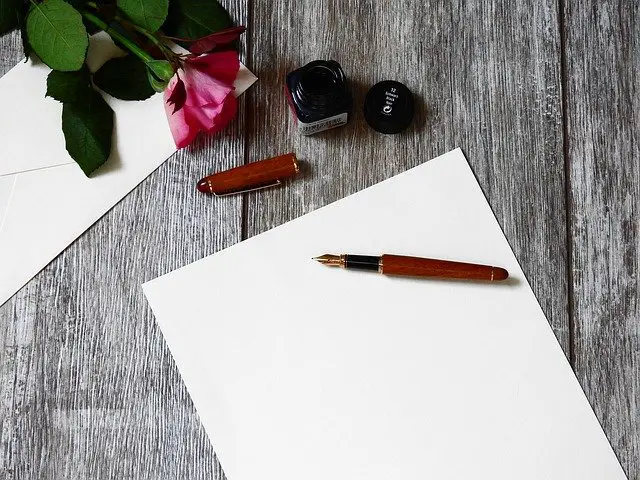How do you address a German correctly in an email? And how do you end a German email? Don’t worry, we have all the answers in our little roundup of correct German email greetings and endings.
Luckily, the usual salutations and closing phrases in a German email are pretty much the same as when writing a letter. When writing a business email (or letter), you should be careful not to come across too informal. When writing to a family member or a friend, on the other hand, you should try not to sound too impersonal. You will find examples for all kinds of scenarios below.
German Email Greetings
- Sehr geehrte Damen und Herren,
The German equivalent of “Ladies and Gentlemen.” You would only use this when you don’t know who will be reading your email, e.g. when writing to a general info@ or mail@ address. - Sehr geehrte Frau [last name],
Sehr geehrter Herr [last name],
This is the correct and most common way to address a lady (Frau) or a gent (Herr) in any formal mail or letter. - Liebe Frau [last name],
Lieber Herr [last name],
Translates as “Dear Mrs” or “Dear Mr”. You may use it when the person you are addressing is familiar to you and you are on good terms. It is more personal than the “Sehr geehrter Herr / Sehr geehrte Frau” form. - Liebe [first name, female form],
Lieber [first name, male form]
The usual way of addressing a friend or family member (e.g. Dear Caroline, Dear David). You would use this when you normally address the recipient by her / his first name. - Hallo [first name],
The same form for both male and female recipients. Can be useful when you either want to be even less formal than the form with “Liebe/r” (Dear). Or when the person addressed is someone close to you, but you want to avoid to sound too personal. - Hallo,
Translates as “hello,” of course. Impersonal, but not formal.

Image by Bruno /Germany from Pixabay
German Email Endings
We’ve spoken about the German email greetings. But to round up our mail, we still need to know how to end a German email correctly!
- Mit freundlichen Grüßen
[full name] or [first name]
The most common closing phrase for a letter or mail. Basically the same as “kind regards”, translates literally as “with friendly greetings.” If you are close to the recipient, you only use your first name instead of the full name to sign the mail. - Mit besten Grüßen
[full name] or [first name]
If you want a change from the usual or you don’t feel like being overly friendly, “best greetings” is a possible alternative. - Viele Grüße
[full name] or [first name]
Literally “many greetings.” Another very common closing phrase in letters and emails. Can be used in both formal and informal mails. - Liebe Grüße
[first name]
Although it includes the word “liebe” which also means love, this is more in the sense of “dear greetings.” Nevertheless a closing phrase you would only use in an informal mail. - Herzlichst
[full name] or [first name]
Meaning “most cordial,” this phrase sounds very close and informal. But it can be used in a formal mail, if you know the recipient quite well. - Hochachtungsvoll
[full name]
Be careful with this one! It translates as “with deep respect.” Although this sounds nice, it almost always means quite the opposite! It’s often used as a closing phrase in letters or mails, when you are demanding something from the other person. You want them to pay their bill or finish the job you hired them for, or you have some other quarrel with the recipient. You are no longer willing to send the usual “friendly greetings.” Instead you are sending “deep respect,” but the recipient knows that doesn’t reflect your true feelings!
Other Helpful German Email Phrases
- Vielen Dank für Ihre Nachricht.
Translation: Thank you for your message. - Entschuldigen Sie, dass ich erst jetzt dazu komme, Ihnen zu antworten.
Translation: Excuse me for just now getting around to replying to you. - Ich danke Ihnen für Ihr Interesse an [product name]
Translation: Thank you for your interest in - Gern beantworte ich Ihre Frage.
Translation: I will gladly answer your question. - Gerne sende ich Ihnen…
Translation: I am happy to send you… - Gern helfe ich Ihnen weiter.
Translation: I will be happy to help you. - Ich freue mich, wieder von Ihnen zu hören!
Translation: I look forward to hearing from you again! - Herzlichen Dank für Ihre prompte Rückmeldung.
Translation: Thank you very much for your prompt feedback. - Bei weiteren Fragen, zögern Sie nicht, sich erneut an uns zu wenden.
Translation: If you have any further questions, please do not hesitate to contact us again.
Congrats, you now know all you need to know about German Email Greetings and Endings! Just choose the right phrase for your purpose and rest assured that it’s perfectly correct German.
Mit freundlichen Grüßen
Joe



